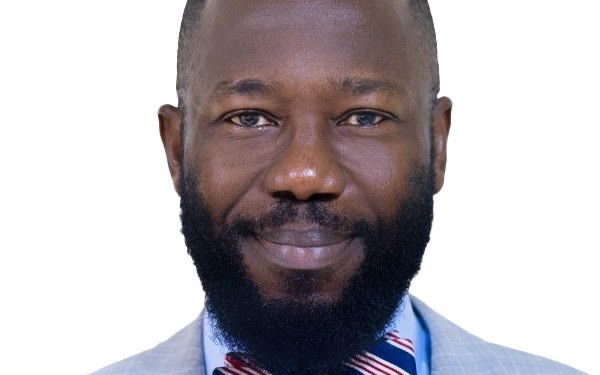By Chinedu Moghalu
The election of Dr. Sidi Ould Tah as the 9th President of the African Development Bank (AfDB) today at the Annual General Meeting in Abidjan, with a commanding 73% of Regional Member Countries (RMCs) and 77% overall—a double mandate never before achieved in the Bank’s history—was no surprise to those who have watched the quiet unraveling of a Bank created to be Africa’s development enabler. For years, the AfDB has toggled between caution and vision. The moment now demands more: a catalytic presidency—and with it, a doctrine. 
Dr. Tah will formally assume office in September 2025. But already, Africa and its partners are reading the signs—not of personality, but of direction. This is not just a transition in leadership. It is the emergence of a doctrine—defined not by ideology or theatrics, but by execution. What Dr. Tah brings is not a manifesto. It is a method.
At the Arab Bank for Economic Development in Africa (BADEA), which he led for over a decade, his record speaks volumes. Annual approvals rose twelvefold, disbursements eightfold, and BADEA became a serious actor in infrastructure, SME finance, digital platforms, and fragile-state engagement. He secured a 376% capital expansion and launched the institution’s first ten-year strategy. In May 2025, just weeks before his election to the AfDB, S&P Global upgraded BADEA’s long-term credit rating to AA+, ranking it among the world’s most trusted development finance institutions. No slogan can outshine that.
From this track record emerges The Tah Doctrine—a presidential mandate anchored on five interlocking pillars: Execution, Scale, Innovation, Inclusion, and Institutional Fitness. This is a doctrine not of promises, but of purposeful architecture. It argues that Africa cannot industrialize, integrate, or secure its future without institutions that are fast, flexible, and fit for today’s shifting global terrain. It is not ideology. It is engineering.
This is a doctrine for our time. Global financing is becoming more selective. Development aid is narrowing. Trade rules increasingly hinge on environmental thresholds and compliance regimes. Meanwhile, Africa’s population is surging, cities are expanding, and infrastructure, energy, and food demand is intensifying. The AfDB must evolve as a broker of capital, policy coherence, and regional ambition.
That begins with scale. The Bank’s current lending of around $10 billion annually falls far short of the continent’s $100 billion+ infrastructure and development financing gap. Under the Tah Doctrine, scale is not optional—it is foundational. Expect bold pursuit of capital expansion: through general capital increases, callable capital reforms, and blended finance vehicles that crowd in private capital. The Africa Investment Forum (AIF) will likely be reimagined—not as a yearly showcase, but as a syndication platform for sovereign wealth, pension, and long-term institutional investors.
But scale without execution delivers little. What Dr. Tah proved at BADEA—and what he brings to AfDB—is a delivery mindset. A culture of results. Infrastructure financing that moves beyond feasibility studies. Education support that extends past enrollment. Agriculture financed from seed to scale. Delivery becomes not aspiration—but a recurring outcome.
This presidency draws a sharper line between funds approved and futures changed.
On innovation, the doctrine is equally bold. At BADEA, Dr. Tah backed programmable Islamic finance, AI-enabled agri-tools, and digital SME ecosystems. At AfDB, expect programmable trade finance, interoperable regional payment systems, smart export insurance, and regional digital infrastructure to help African producers adjust to ESG and carbon border compliance. Innovation is not framed as novelty—but necessity.
If the Washington Consensus emphasized liberalization, privatization, and fiscal discipline, The Tah Doctrine moves in a different but complementary direction: toward catalytic, state-capable institutions, deeper market coordination, and unambiguous African agency in shaping development tools. It builds on prior eras—without mimicking them—tailoring tools to Africa’s evolving context. Infrastructure is not just concrete—it is continuity. Delivery is not a one-off—it is a system. And credibility lies in what is sustained, not just approved.
Crucially, the doctrine’s heartbeat is African. It draws not from ideology, but from the spirit of Ubuntu: I am because we are. Development, in this framing, is not imposed. It is co-created. It is collective. It is institutionalized in models that reflect the dignity, urgency, and ambition of the people they serve.
The Tah Doctrine channels this ethic into institutional form. It asserts that African ambition must no longer be outsourced—and African potential no longer postponed. It builds the scaffolding—legal, financial, and institutional—through which that ambition becomes real. Not exclusion, but coherence. Not dominance, but stewardship.
A revitalized Africa Investment Forum is almost certain: one that functions year-round, curating pipelines, syndicating capital, and accelerating financial closure—not just convening panels. The Forum’s future mandate will likely deepen: mobilizing capital with accountability, not just interest.
Alongside it, the doctrine envisions an Export Transition Facility—a practical tool to help African firms adjust to emerging trade expectations, including ESG benchmarks and carbon adjustments. These are not distant ideas. They are today’s imperatives.
On regional integration, the doctrine is pragmatic. It aligns the Bank’s trade and industrial financing with the promise of the African Continental Free Trade Area (AfCFTA)—not as rhetoric, but as real infrastructure. Corridors built. Ports financed. Standards harmonized. Supply chains activated. Private-sector-led value chains unblocked.
The same clarity applies to inclusion. Africa’s women and youth are not sidelines—they are the engine. At BADEA, Dr. Tah introduced youth leadership programs, green entrepreneurship tools, and financing for women-led businesses in fragile settings. These weren’t gestures. They were productivity plays. The starting point was access. The goal was agency.
At AfDB, expect gender-intentional SME financing, employment-linked blended capital, and new vehicles for agribusiness, fintech, and light manufacturing—designed for the businesses Africa’s youth are building now. This is inclusion by design, not default. A presidency that treats Africa’s demographic shift as a competitive edge, not a crisis.
Still, no doctrine—however compelling—is immune to the realities of a mature institution. AfDB does not pivot on charisma. But that is not how Dr. Tah leads. His approach is structured, disciplined, and quiet. This is not a vision about one man. It is about institutions that outlast personalities, strategies that transcend terms, and delivery that embeds credibility into systems. He is not coming to disrupt. He is coming to deliver.
And that, ultimately, is the promise of The Tah Doctrine: it does not seek rupture. It seeks renewal.
Skeptics will emerge. But precedent matters. BADEA wasn’t reformed by press releases. It was transformed by performance. That legacy now accompanies Dr. Tah to AfDB.
This doctrine is not a challenge to the world. It is a message to Africa—and a proposition to partners: that credible institutions, when backed by clarity and delivery, can become engines of transformation.
And so we return to the quiet force of it all.
The Tah Doctrine insists that Africa’s future must no longer be delayed by bureaucracy, denied by capital, or defined by others. It must be delivered—by Africans, in partnership with the world, through institutions that work.
This is not sentiment. It is strategy.
Not hope. But architecture—deliberate, evolving, and accountable.
Doctrines are not judged in theory.
They are judged in lives. In roads. In jobs. In trust earned.
And this one—this one—will be judged not by what it says.
But by what it builds.
Chinedu Moghalu is a strategic communications expert, lawyer, and public policy adviser with over two decades of leadership across government, international organisations, and development institutions. He has directed high-level communications and government relations at the African Risk Capacity and the Global Center on Adaptation, and has worked with the Global Fund, ILO, and national institutions to shape reform efforts across health, education, climate resilience, and trade.














